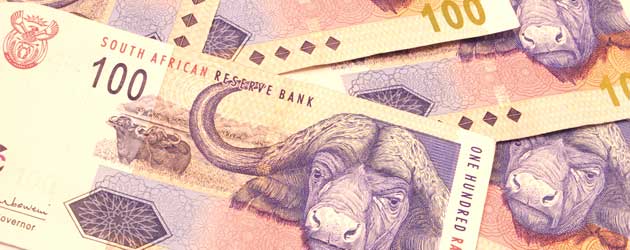South Africa’s state-owned utility Eskom Holdings SOC Ltd is struggling to stay afloat, warning of controlled blackouts to conserve energy. The fallout from the potential losses of sustained blackouts has been priced in by traders and the South African Rand has softened considerably against the majority of its major peers. Sterling, meanwhile, is holding as traders await Bank of England Governor Mark Carney’s speech later on Thursday.

The Pound Sterling to South African Rand exchange rate is currently trending in the region of 18.2360.
Sterling has had to battle against a sparse economic calendar this week, with a complete absence of data on Wednesday. The lack of influential data has made it difficult for the Pound to rebound against the trader profit locking; which was as a result of a surge in demand following the Unionists victory in the Scottish independence referendum.
As an emerging market and risk-sensitive currency the South African Rand has had to combat a bullish US Dollar and rising geopolitical tension. Unsurprisingly it has struggled to sustain any gains against its most traded currency rivals.
The Pound Sterling to South African Rand exchange rate has hit a low today of 18.1470.
In anticipation of Bank of England Governor Mark Carney’s speech in Wales on Thursday the Pound is remaining relatively static against the majority of its currency competitors.
The South African Rand has been dragged down on Thursday which can be attributed to a number of reasons. The ongoing tensions in Syria and Northern Iraq have caused trader risk sentiment to weaken considerably.
Another reason for the South African’s declination is as a result of a softening Euro because of a strong trade link between the two nations. In an interview on Thursday morning European Central Bank President Mario Draghi reiterated his willingness to do whatever it takes to stimulate the Eurozone economy into growth, which means quantitative easing could be coming.
Perhaps the most poignant contributor to the Rand downfall is a massive struggle faced by state-owned energy provider Eskom. ‘Eskom is in dire straits,’ said Anne Fruhauf, southern Africa analyst at New York-based risk adviser Teneo Intelligence. Electricity shortages pose the biggest risk to the country’s economy, and in the long term ‘South Africa cannot dream of reaching a higher-growth path without an increase in baseload capacity’.
Paul Burkhardt, writing for Bloomberg, stated; ‘Once a powerhouse that drove the Apartheid economy and even delivered energy to neighboring nations, Johannesburg-based Eskom today is struggling to keep decades-old plants running while completing new ones that are years behind schedule’.
South African data on Thursday has had little impact on Rand movement given the issues addressed above. The yearly Producer Prices Index fell from the previous figure of 8.0% to 7.2%.
Forecast for the Pound to South African Rand Exchange Rate
With very little British data the Pound’s position on Friday and over the weekend is most likely to be dictated by Carney’s speech on Thursday.
A complete absence of South African data is likely to see the Rand continue to trend lower on Friday and over the weekend.
The Pound Sterling to South African Rand exchange rate has reached a high today of 18.2670.
UPDATE
The Pound Sterling to South African Rand exchange rate is currently trending in the region of 18.2063.
On Thursday Bank of England Governor Mark Carney gave a hawkish speech in Wales. He suggested that nearly all of the conditions for normalising monetary policy have now been met, and a benchmark rate increase is getting closer. Sterling shot up across the board following the address, but has softened since.
The current Sterling softness could be attributed to several factors. It is possible that sentiment towards the Pound has dropped after it looks like Prime Minister David Cameron will get the go ahead to begin air strikes on Syria and Northern Iraq.
Another possible reason for the Sterling downtrend could be trader profit locking. A huge surge always presents attractive selling positions and many traders may have profited from withdrawing from a short-term investment.

